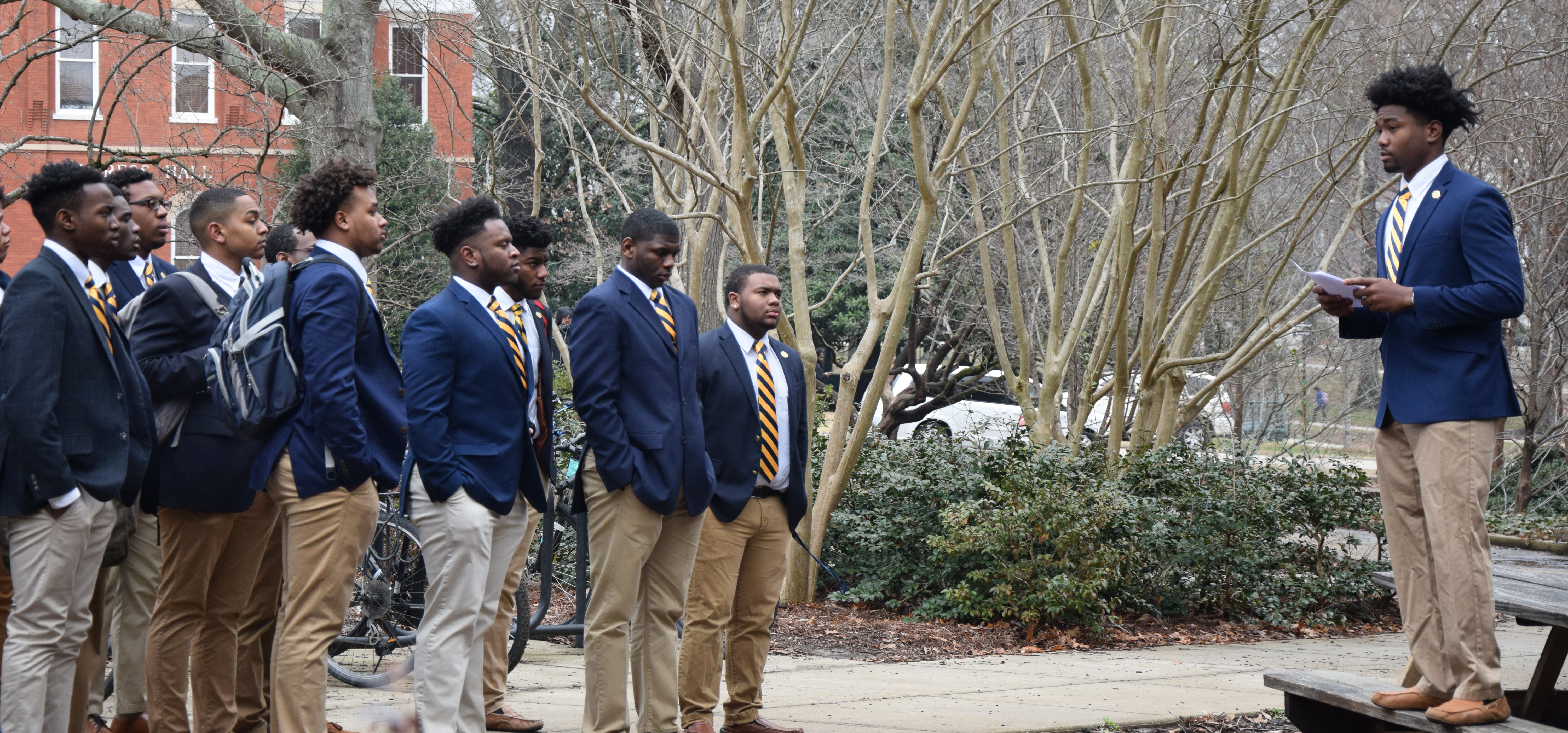The Ole Miss Men of Excellence held a “Continuing the Legacy Walk” to honor James Meredith yesterday afternoon.
Members of the group, which aims to empower minority males at the university, began the walk at the steps of the Lyceum and ended it at the James Meredith statue, with stops at other historical sites relating to Meredith’s integration at the University of Mississippi along the way.

Rodney Kemper talks about the Civil War, segregation and taking down the Mississippi state flag. The ‘Continuing the Legacy Walk’ was hosted by the Men of Excellence on Wednesday. Photo by Madison Wren
Meredith became the first African-American student to enroll at the university in 1962. Protests following his enrollment resulted in a riot on the Ole Miss campus that left two people dead and a few hundred injured.
Rodney Kemper, a freshman biomedical engineering major, and Nicholas Crasta, a sophomore biology and political science double major, led the tour through campus together and spoke to their fellow Men of Excellence about the resistance Meredith faced as he tried to enroll at Ole Miss.
“I believe the important part to take away from the walk today was to not let what James has done go to waste,” Kemper said. “And to come to this school and celebrate his legacy by getting an education, which is all he wanted to do.”
Kemper said he thinks the event stands out among others on campus during Black History Month because it is an educational tour led by black men and sends out a positive message.
“I want to personally thank James for being the beginning and allowing me to continue his legacy and ideals by receiving my education from this great school,” Kemper said.
Crasta said the celebration of Meredith was special to him because Meredith is a hero not only at Ole Miss but nationally, too.
“He was a pioneer for all the minority students, like myself, at this university today, and we would have limited options for higher education if he had not gone against the so many that despised him,” Crasta said.
In Crasta’s opinion, the walk is just the beginning of what the Ole Miss student body, both white and black, needs to take part in to pay homage to James Meredith.
“As a black male attending a university with a historically negative reputation of racial diversity and treatment, I feel that events like this are necessary to spread awareness, remind us about the obstacles overcome in the past and to make sure our minority presence is felt,” Crasta said.






